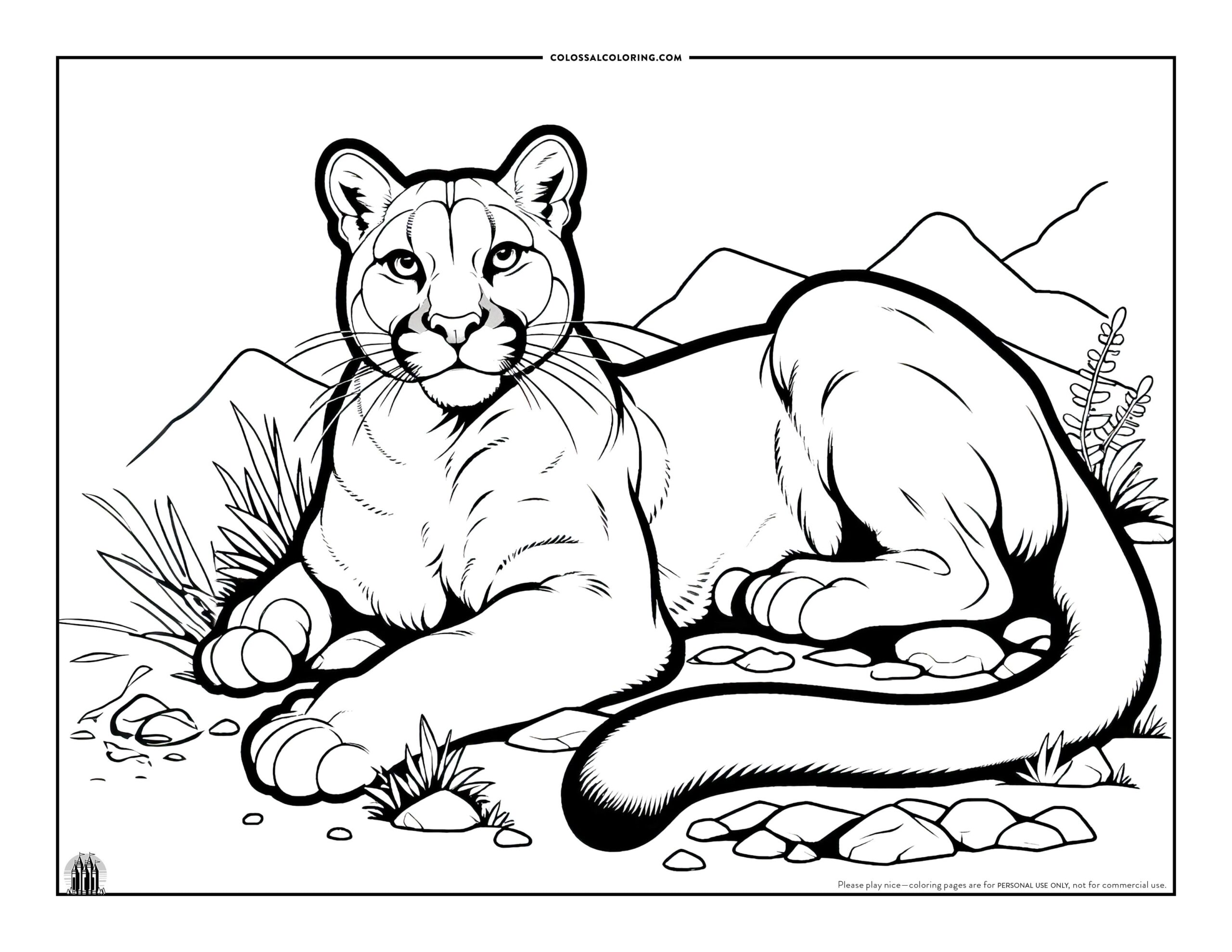
Hey there, young explorers! Today, we’re going to embark on a fascinating journey into the wild to learn about one of nature’s most incredible creatures – the mountain lion. Also known as cougars or pumas, these majestic animals are a wonder to discover. Let’s dive into their world!
What is a Mountain Lion?
Mountain lions are large, powerful cats that roam the mountains and forests of the Americas. They have a sleek, athletic body, a beautiful tawny coat, and a long, muscular tail that helps them balance. These big cats are super stealthy and are known for their amazing ability to jump and climb.
Where Do Mountain Lions Live?
These magnificent creatures have a vast home range. They are found from the Canadian Rockies all the way down to the southern Andes in South America. Mountain lions love to live in a variety of habitats including forests, deserts, and even wetlands!
What Do Mountain Lions Eat?
Mountain lions are carnivores, which means they eat meat. Their diet mainly consists of deer, but they also hunt smaller animals like rabbits, birds, and even fish. They are skilled hunters who prefer to hunt alone, often at dawn or dusk.
Mountain Lion Super Skills:
- Incredible Jumpers: Did you know mountain lions can leap up to 15 feet high and 40 feet in distance? That’s almost like jumping across a school bus!
- Silent Stalkers: They move quietly and patiently, making them excellent at sneaking up on their prey.
- Strong and Speedy: These cats can run up to 50 miles per hour in short bursts – that’s faster than a car in a school zone!
Fun Facts About Mountain Lions:
- Mountain lions don’t roar like lions. They make softer sounds like purrs, growls, and hisses.
- They are solitary animals, which means they like to live and hunt alone.
- Baby mountain lions are called cubs and have spotted coats when they are born.
Conclusion:
Mountain lions are truly remarkable animals that play an important role in our ecosystems. They help keep animal populations balanced, which is important for the health of our forests and mountains. Remember, these are wild animals, so if you ever come across one, admire it from a safe distance.





